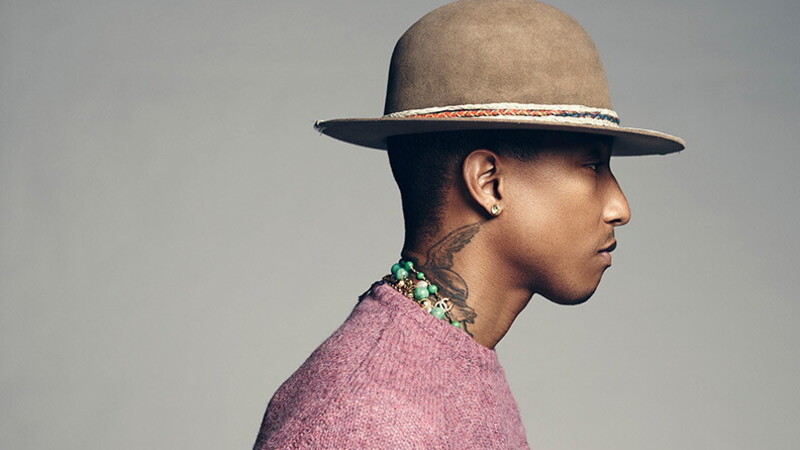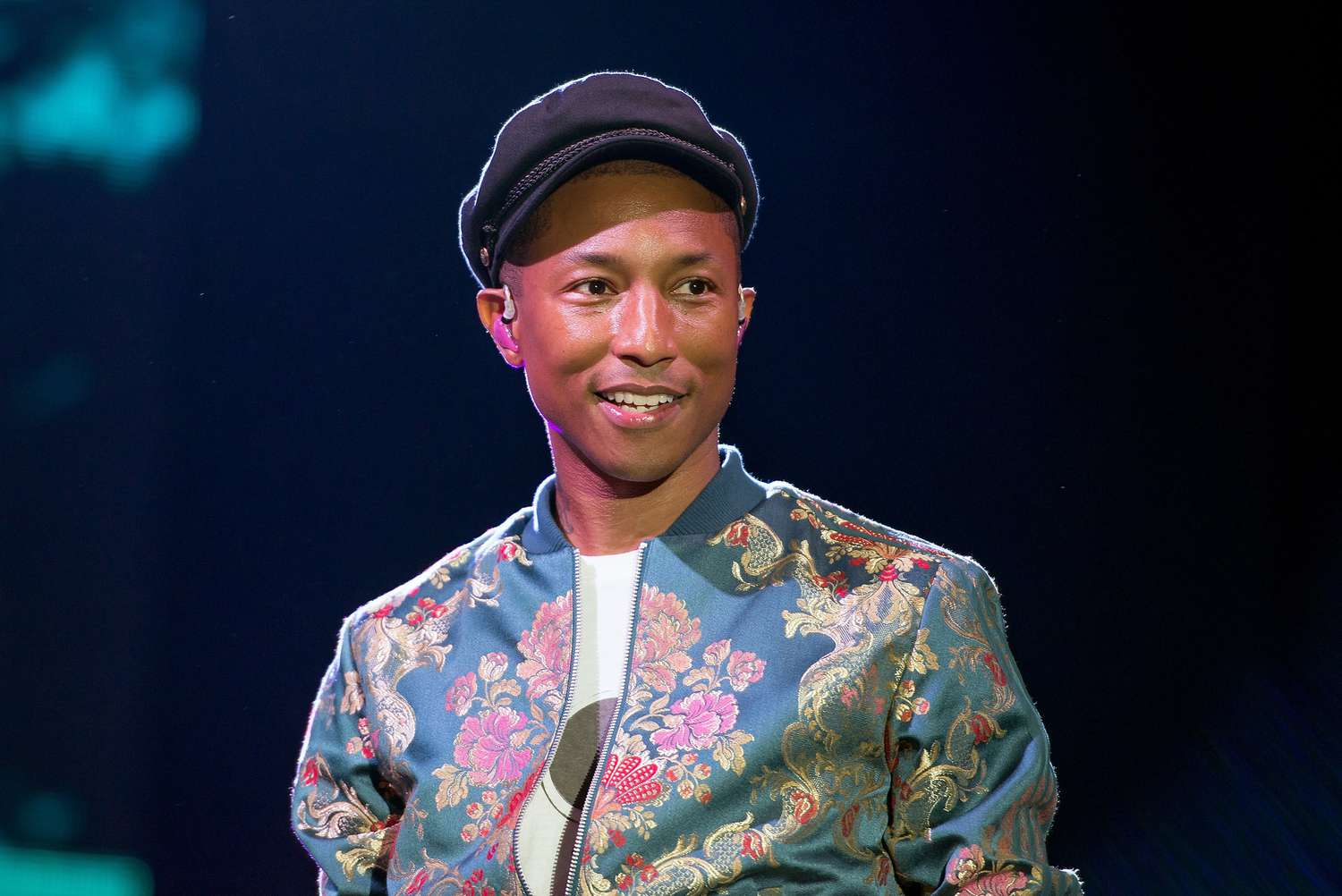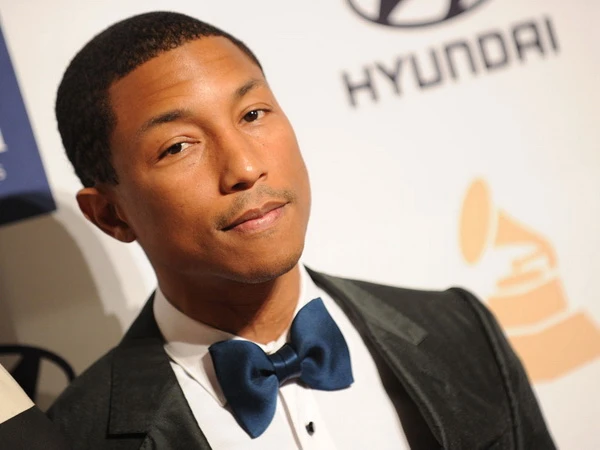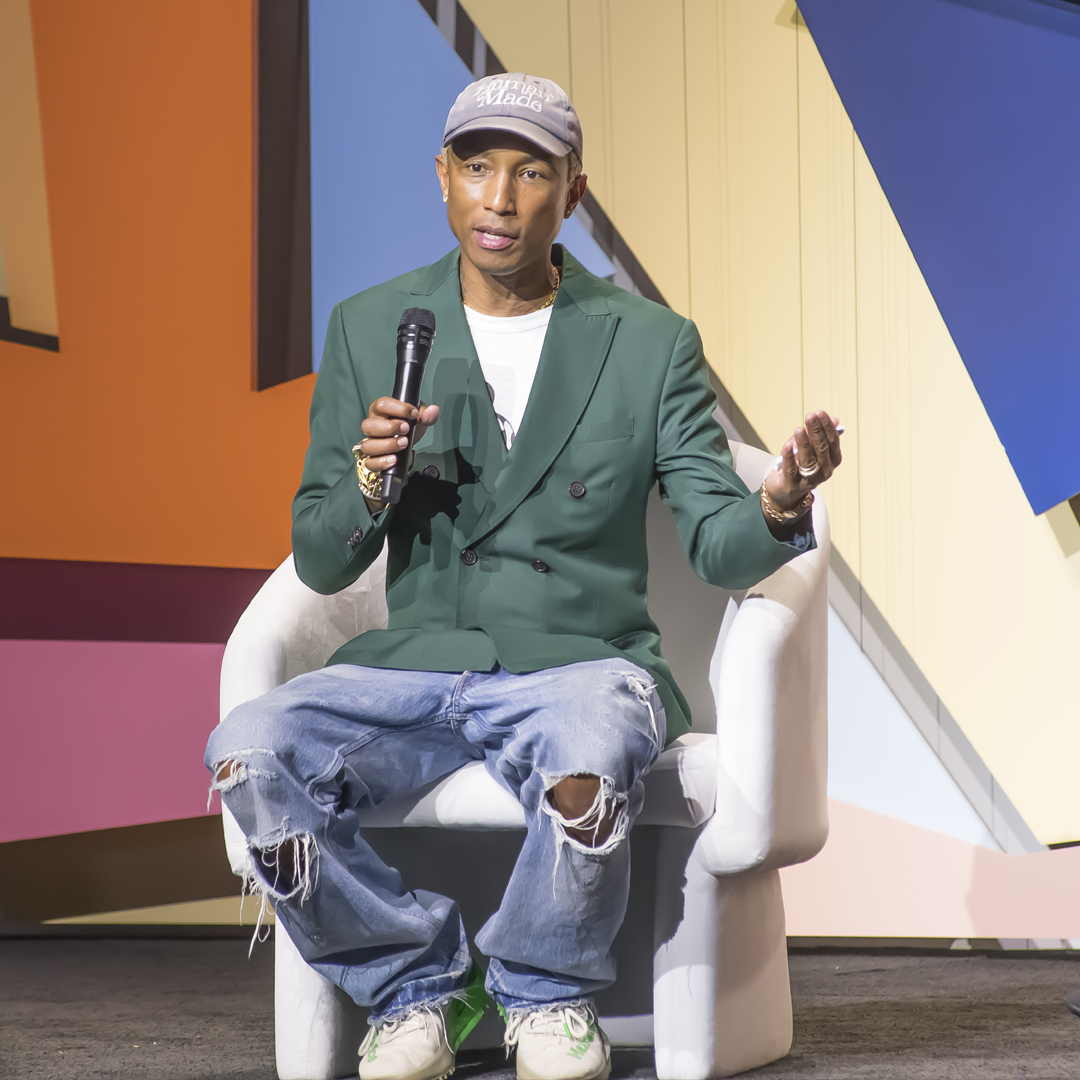Recently, Pharrell Williams found himself needing to dispel rumors in an interview with CNN, reassuring viewers that he is not, in fact, a vampire. This claim had nothing to do with his extraordinary creative talents in songwriting, performing, or fashion design. Instead, it was about his youthful appearance at 47, as he approaches his sixth decade. His striking angular cheekbones are inherited from his grandmother, and his almond-shaped eyes come from his father. While his musical prowess garners admiration, there has always been an equal fascination with his looks and skincare regimen. Williams’s thoughtful, philosophical approach extends to all his endeavors. “Sometimes you need to cleanse your spirit,” he reflects. “Sometimes you need to cleanse your mind. Sometimes you’ve just got to get rid of some dead skin.”
He’s here to discuss his latest venture: a skincare line developed in collaboration with his longtime dermatologist, Elena Jones. “Are you seeing this?” he asks proudly, showing off a squat bottle colored like freshly mown grass. The name “Humanrace” stands out boldly on the packaging.
Humanrace Skincare debuts with a rice powder cleanser, an enzyme exfoliant, and a “humidifying” moisturizer. “I grew up in humidity,” he notes, recalling his Virginia Beach roots, just a mile from the ocean. “The way I think about things… I’m an Aries, but I’m also a Cancer rising. Water makes me feel free. Water is very inspiring to me.” Indeed, water has been a lifelong theme for him. “I’ve always been obsessed with the idea that water falls [from] the sky as evaporation,” he explains.
Williams’s knack for promoting even the simplest products is evident here. He holds up a loden-green sandal to the webcam, which looks like a shower slide with a puffy tube top. “I told everybody, ‘Listen, wearing these are like [wearing] socks,’” he says. I research them: Adidas x Pharrell Williams Boost slides, $100 a pair. “And they sell out, because people want comfort.”

If you were to invent a title for him, Pharrell Williams would be the Chief Sensations Officer at Humanrace. He characterizes his skincare expertise as the ability to “describe sensations,” which are then reverse-engineered by his team to create previously non-existent experiences. Whether it’s the feeling of shoes that gently embrace your feet or the sensation of humidity on your face captured in a cream that also highlights your cheekbones, Williams translates these sensations into tangible products.
“You put on that humidifying cream,” he says with a grin that flattens his little black mustache, “You’re like, ‘Oh man, my skin is popping.’”
Under the relentless Miami sun, where the air is so humid it could be sold as a moisturizer, Williams goes for bike rides a few times a week. He began biking around Miami 15 years ago as both a physical and spiritual practice. The cardio from riding up to a hundred miles a week helps keep his physique lean. “I like to be slim,” he explains. “I don’t want to be bulky. I don’t want to have big muscles and shit. Like, I’m not looking to be some Greek statue.”
“Sometimes you need to cleanse your spirit. Sometimes you need to cleanse your mind. Sometimes you’ve just got to get rid of some dead skin.”
At the start of each ride, he curses the wind, but soon he feels it as a divine force propelling him forward. “You realize that there is something much more than just you, your bike, and your attention to where you’re headed. There’s this force that comes from nature that you just… If you’re down to be in tune, it speaks to you. It speaks to me.” He spent much of his youth biking in Virginia Beach, likely looking much like he does now—slim and youthful—riding south and north.
In his mid-20s, Williams began a serious focus on skin health. During the early stages of his career, he would often engage in impromptu grooming discussions with women he dated, befriended, or met professionally. “They’d talk to me about their skin and the things that they’d do,” he recalls. “It varied between the different girls and campaigns that they had done and what they felt was integral to their process.” He fondly remembers skin-care advice from Naomi Campbell: “‘As soon as you’re done washing your face, you wash it with cold water.’ She would always talk to me about never washing my face with the downward strokes of whatever cloth I was using, to always go upward, to go against the gravity.”
(Williams married Helen Lasichanh in 2013; the couple had a son in 2008 and triplets in 2017. He is no longer engaging in these skin-care discussions with women.)

The celebrity network offers a mixed bag of skin-care advice. On one hand, celebrities often have a strong grasp of skin care, akin to how an American soldier might master Tagalog while stationed in the Philippines. However, many are contracted by beauty companies, which can limit their expertise to promoting specific brands or products, making them unreliable narrators at times.
Williams’s description of his skin-care line reflects his unique approach: “Humanrace is a full-on brand,” he says. “We just want to make things better. We want to democratize the experience of achieving wellness. And I’m not trying to be like any other wellness brand out there. That’s what they do. That’s what they give. Ours is all based on results and solutions and sensations. We wanted to look at sensations. I mean, we live in a world that needs it.”
While Williams has previously been cautious about identifying himself as an activist, his perspective has evolved, particularly influenced by the Movement for Black Lives this past summer. He has been inspired by thinkers like Michael Harriot and Henry Louis Gates Jr., who have demonstrated that impactful change can take many forms. “Gates said, there are many different ways to protest, to be on the front lines,” Williams notes, referring to the widespread protests in the United States since May. “Some people are great orators. Some people are great strategists. Some people can stand and hold a placard, protest sign, for way longer than other people. There are people making sandwiches and bringing nourishment to people who are out there. My activism has [taken a lot of shapes]. Because my culture, our lives matter.”
This summer, Williams and Jay-Z released “Entrepreneur,” a track highlighting the systemic ways capital is withheld from Black men. The phrase “Black Man” even illuminated Times Square from a New York Police Department outpost, promoting the single.
When asked if the song draws any inspiration from his own business success, Williams is reserved. “I mean, Jay and I just did that song as a PSA,” he says. “Only. It’s just that.”
Williams explains that the song aims to inspire aspiring Black business owners to act on their ambitions despite the obstacles. “When you hear the whispers of your ambitions, act on them. You’ve generationally been told how tough it’s going to be for you. It’s like you’re on the baseball team, with one arm behind your back. You might be able to catch the ball. How far are you going to be able to hit it? They need you to be able to make it all the way home.”

Williams has certainly made it home. He’s written, produced, or performed at least one of your favorite songs, making you leap from the bathroom to the dance floor back in the days when that was a thing. He’s been behind tracks that made you hold on tight through the opening notes of hits like “I’m a Slave 4 U” and “Hot in Herre.” In his early days, while working with Chad Hugo, their contributions were often overshadowed by the star power of artists like Britney, Justin, and Nelly. But when it became known that two men from Virginia Beach were responsible for a significant chunk of pop radio hits, the music world took notice.
How does Pharrell Williams create music? “It’s like a house,” he explains. “There’s more than one way inside the house. It’s not just the front door. The side doors, windows, patios. There [are] so many ways, so I don’t know that we have the time to —”
We don’t. We’re at minute 50 of a tightly scheduled second interview, which has to be conducted during Williams’s workout. The first interview took place while he was working on Rosalía’s third studio album, during which he had to briefly step away to bid her farewell.
“— really unpack that. I will say that no matter the scenario, when it comes to music for me, there’s always a trigger. It’s just a word in the conversation or a notion, or seeing a situation, or watching a movie. It all depends. And once you find that trigger, it becomes a rabbit hole and then you just kind of go down that. The rest of it is figuring out what the groove is going to be.”
Currently, he and Hugo are working on crafting the groove for Rihanna’s highly anticipated ninth album. “Rih is in a different place right now. Like, wow. She’s from a different world.” Williams humorously suggests that this world might be Venus, backing it up with a recent theory that there could be life on our neighboring planet. “I‘m willing to bet, because Venus is gaseous, that if they had a telescope that could zoom through all that shit, you’d see Rih laying there naked.”

“I’m an Aries, but I’m also a Cancer rising. Water makes me feel free. Water is very inspiring to me.”
Williams possesses the remarkable ability to create music that is both exceptional and widely popular. Over the past decade, he has achieved two Billboard Hot 100 hits that dominated the charts for over ten weeks: “Blurred Lines” and “Happy.” The former, a funky track, was controversial, with some critics interpreting it as condoning sexual assault—an interpretation that Williams has since come to understand. “Happy,” on the other hand, became a staple at baby showers and beyond.
The creation of “Happy” marked a shift in Williams’s musical approach. The song was less a personal creative pursuit and more a deliverable for Universal Pictures for the film Despicable Me 2. Originally, CeeLo Green was slated to provide vocals, but his team declined the opportunity. In an alternate reality, our CVS pharmacies might be stocked with CeeLo Green’s distinctive voice proclaiming joy and urging us to join in.
But that’s not the world we live in. Williams ended up recording “Happy,” his smooth voice adding a golden touch to the track. The song’s infectious catchiness, along with its themes of happiness, gratitude, and dancing, helped Williams win over children and older adults alike, likely enhancing his fame. Though it was initially a commission for another artist, Williams transformed it into a defining moment of his career, acing a work assignment that, for better or worse, became a significant part of his legacy.







